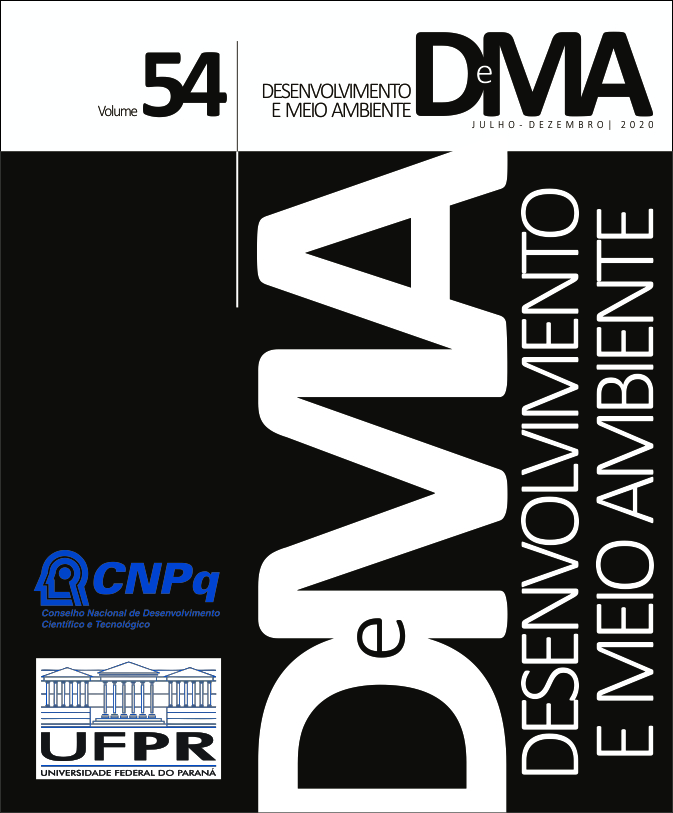Acordos de Cooperação entre o Brasil e a França na área de sociologia rural e ambiental: o percurso da paridade
DOI:
https://doi.org/10.5380/dma.v54i0.78205Palavras-chave:
cooperação universitária, sociologia rural e ambiental, agricultura familiar, agroecologia, intercâmbio paritárioResumo
A cooperação universitária entre a França e o Brasil surgiu na década de 1970. Partimos do que se estabeleceu mais particularmente no campo da sociologia rural e ambiental, mediante um convênio inicial entre um laboratório do CNRS da Universidade Paris Nanterre e uma universidade brasileira na Paraíba. No ritmo de convênios sucessivos que se deram até hoje em dia (novembro de 2020), a rede de cooperação se expandiu tanto na França, envolvendo instituições ligadas à agronomia e às ciências sociais, quanto no Brasil, onde universidades do Sul aderiram à cooperação, considerando assim vários acordos. Ao recuperar o registro de uma colaboração marcada pela sua continuidade, mostramos como ela evoluiu para uma maior paridade entre os parceiros e como incorporou as correntes de ideias que irrigam o meio acadêmico e os movimentos sociais.
Downloads
Publicado
Como Citar
Edição
Seção
Licença
Os Direitos Autorais sobre trabalhos publicados nesta revista são do autor, com direitos de primeira publicação para a revista. O conteúdo dos trabalhos publicados é de inteira responsabilidade dos autores. A DMA é um periódico de acesso aberto (open access), e adota a licença Creative Commons Atribuição 4.0 Não Adaptada (CC-BY), desde janeiro de 2023. Portanto, ao serem publicados por esta Revista, os artigos são de livre uso para compartilhar (copiar e redistribuir o material em qualquer suporte ou formato para qualquer fim, mesmo que comercial) e adaptar (remixar, transformar, e criar a partir do material para qualquer fim, mesmo que comercial). É preciso dar o crédito apropriado, prover um link para a licença e indicar se mudanças foram feitas.
Os conteúdos publicados pela DMA do v. 53 de 2020 ao v. 60 de 2022 são protegidos pela licença Creative Commons Atribuição – Não Comercial – Sem Derivações 4.0 Internacional.
A DMA é uma revista de acesso aberto desde a sua criação, entretanto, do v.1 de 2000 ao v. 52 de 2019, o periódico não adotava uma licença Creative Commons e, portanto, o tipo de licença não é indicado na página inicial dos artigos.




